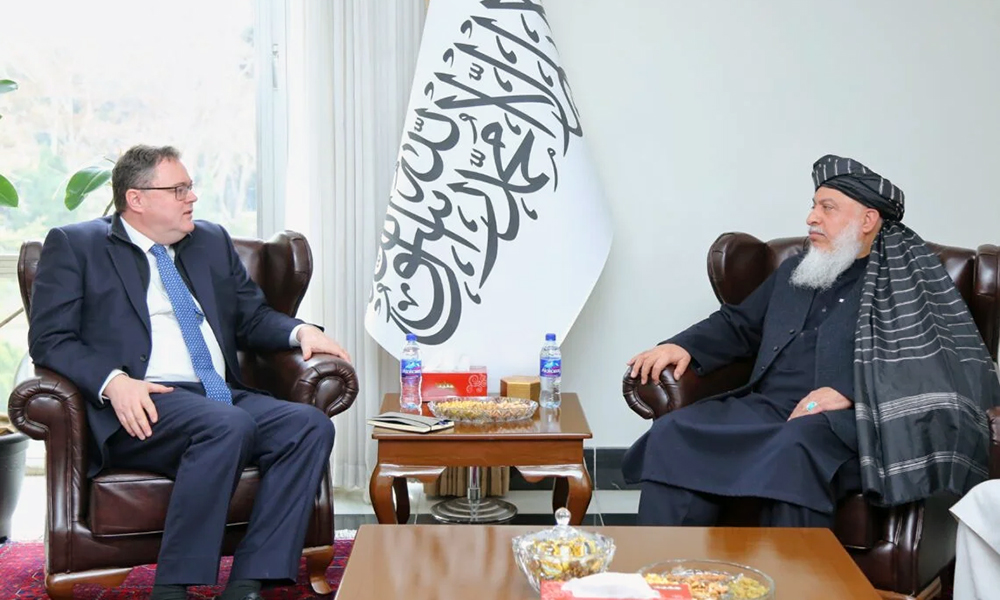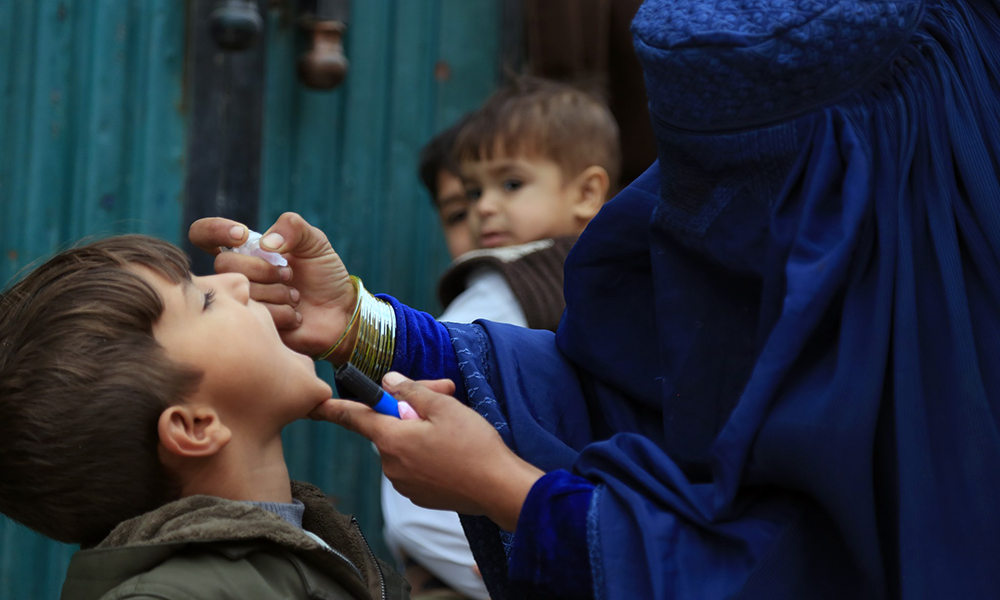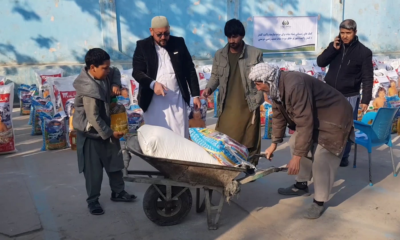Latest News
AFJC calls on UN Security Council to step up efforts to protect Afghan journalists

The Afghanistan Journalists Center (AFJC) and 40 other civil society organizations from around the world have called on the UN Security Council and UNAMA to support the media community by calling on all parties to stop violence against journalists in accordance with United Nations Security Council Resolution 2222 (2015).
This comes amid a wave of targeted killings against media workers in the country.
The AFJC said in a letter to the UN, and to the United Nations Assistance Mission in Afghanistan (UNAMA) head Deborah Lyons, that the council and all parties to the letter “are deeply concerned by the torrent of targeted killings of journalists in Afghanistan since early 2020.
“These attacks have had a devastating impact on Afghanistan’s vulnerable civic space, press freedom, and related democratic rights, and we write to urge you to take immediate action.”
According to AFJC’s press freedom tracker, 11 journalists and media workers have been killed in Afghanistan since the February 2020 signing of the US-Taliban agreement in Doha.
“Most of these journalists were deliberately targeted for their work, which underscores the lack of effective human rights protections in the country.
“Among the eleven journalists are TV presenter Malala Maiwand, who was killed on Human Rights Day on December 10, 2020 with her driver, freelance photojournalist Rahmatullah Nikzad, who was killed in Ghazni province on December 21, 2020, and Besmillah Adel Aimaq, a radio journalist who was killed in Central Ghor province on January 1, 2021.”
Media freedom and freedom of expression are human rights recognized under international legal conventions that Afghanistan is a party to, as well as domestic law, the letter read adding that the enforcement of Afghan Media Laws - ensuring the security of journalists and media outlets - is a fundamental responsibility of the Afghan government.
“Although some efforts have been made by the government to protect and uphold these rights, they have not been sufficient to prevent violations, and prosecute the perpetrators of violence against journalists,” the letter stated.
“The Afghan government has made repeated pledges to ensure the security of Afghan civilians, yet there remains a culture of impunity for those responsible for carrying out targeted killings of journalists.”
The AFJC stated: “We believe that strong and concerted political action from the United Nations Security Council and increased support from the UN Assistance Mission in Afghanistan are now essential, given their interest in a peaceful transition and the role that a free press plays in this endeavour.
“Targeting journalists creates a societal ripple effect of fear and censorship and deprives the public of crucial information about the peace process. Therefore, we request that the UN Security Council stand against the ongoing impunity for attacks against journalists in Afghanistan.”
The AFJC called on the UN to use all diplomatic powers at their disposal to ensure the protection of press freedom and the safety of journalists and media workers in Afghanistan, especially in the event of a peace deal resulting in a new political settlement.
They also urged the UN to intensify efforts to protect journalists in Afghanistan by working with the government to take serious action to end impunity; to scrutinize and reconsider international financial support to the Afghan government, so as to ensure meaningful commitments to protect media freedom and the rule of law’ and to encourage the international community to offer and strengthen practical and accessible support to threatened journalists and media workers, such as safe passage, refuge, and medical assistance where necessary.
Among the organizations to endorse the letter was the Committee to Protect Journalists (CPJ) and journalist and human rights associations from the US through to Asia and Africa.
Latest News
Eight Afghan migrants die as boat capsizes off Greek island

Eight Afghan migrants died after a speedboat carrying migrants capsized off Greece's eastern island of Rhodes on Friday, the Associated Press reported.
Greek authorities said that the capsizing was the result of the boat’s maneuvering to evade a patrol vessel.
A total of 18 migrants — 12 men, three women and three minors — all Afghan nationals, were rescued, Greece's coast guard said Saturday. The dead were also from Afghanistan, it said.
Some migrants remained hospitalized, with one in critical condition, authorities said.
Two Turkish citizens, ages 23 and 19, were arrested as the suspected traffickers. The boat sank after capsizing, the coast guard said.
The sinking off Rhodes was the second deadly incident involving migrants in the past week.
Seven migrants were killed and dozens were believed missing after a boat partially sank south of the island of Crete over the weekend — one of four rescue operations during which more than 200 migrants were rescued.
Latest News
Norwegian Chargé d’Affaires meets with IEA deputy foreign minister
Welcoming the diplomat’s visit to Kabul, Stanikzai underscored the importance of political relations between Afghanistan and Norway, the foreign ministry said in a statement.

The Norwegian Chargé d’Affaires for Afghanistan, Per Albert Ilsaas, on Saturday met with IEA’s Deputy Foreign Minister for Political Affairs, Sher Muhammad Abbas Stanikzai, in Kabul.
Welcoming the diplomat’s visit to Kabul, Stanikzai underscored the importance of political relations between Afghanistan and Norway, the foreign ministry said in a statement.
In addition to focusing on bilateral political, humanitarian, and other pertinent issues, the two sides expressed hope that continued engagement would lead to constructive solutions to related issues.
This comes two weeks after the Foreign Ministry Spokesman Abdul Qahar Balkhi expressed disappointment regarding the decision by the Norwegian government to downgrade diplomatic relations with Afghanistan.
Balkhi said in a post on X that such decisions should not be linked with internal affairs of other countries.
“Diplomatic engagement is most effective when it fosters mutual understanding and respect, even amidst differing viewpoints,” he stated.
“Access to consular services is a fundamental right of all nationals. We strongly urge all parties to prioritize this principle in the spirit of international cooperation,” he added.
Latest News
A new polio vaccination campaign is set to launch in Afghanistan
Afghanistan and Pakistan are the only two countries in the world where polio has not been eradicated.

The “Afghanistan Polio-Free” organization announced that a new round of polio vaccinations will begin on Monday, December 23, in various provinces of Afghanistan.
The organization did not specify which provinces will be targeted or how long the vaccination campaign will last.
Afghanistan and Pakistan are the only two countries in the world where polio has not been eradicated.
On December 4, 2023, the World Health Organization (WHO) issued a statement reporting a 283% increase in polio cases in Afghanistan. According to the WHO, the number of positive environmental samples for wild poliovirus type 1 in Afghanistan in 2024 reached 84, compared to 62 cases in 2023.
The Ministry of Public Health claimed in November 2024 that no new cases of polio had been reported in Afghanistan for the year.
-

 Sport4 days ago
Sport4 days agoZimbabwe’s opening ODI against Afghanistan abandoned
-

 World3 days ago
World3 days agoNorth Korean troops suffer 100 deaths, struggling in drone warfare, South Korea says
-

 Latest News3 days ago
Latest News3 days agoTwo horror accidents on Kabul-Kandahar highway leave 52 dead
-

 Latest News1 day ago
Latest News1 day agoAfghan men must stand with women to support viable future of country: US envoy
-

 International Sports4 days ago
International Sports4 days agoLanka T10: Kandy Bolts in at 4th spot in playoffs after thrilling day
-

 Sport3 days ago
Sport3 days agoAfghanistan crush Zimbabwe by 232 runs in second ODI
-

 Regional4 days ago
Regional4 days agoIran’s president to make rare visit to Egypt for D-8 summit
-

 Latest News5 days ago
Latest News5 days agoKunduz families get much needed food aid, thanks to Bayat Foundation
























